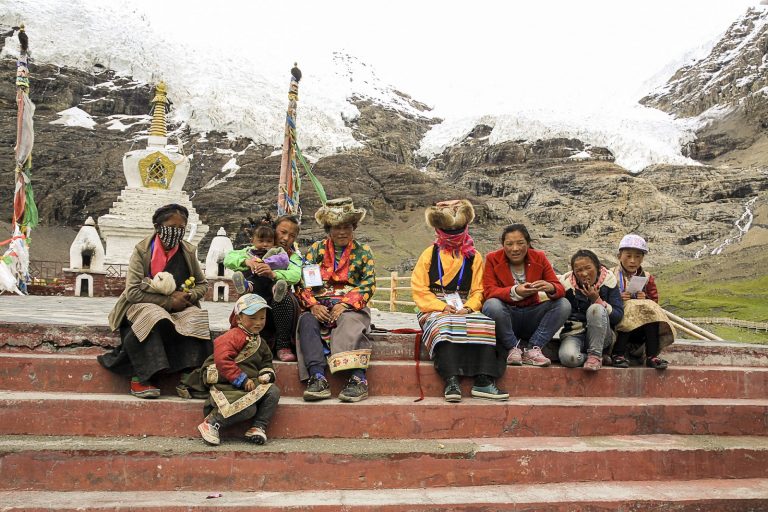Chinese authorities have placed a ban on teaching Tibetan language to children in the province of Qinghai. The law bans even informal Tibetan lessons being taught to children. Local Tibetans living in the region see this policy as a method to suppress their culture and indoctrinate communist agenda into the minds of Tibetan youth.
“No individual or organization is allowed to hold informal classes or workshops to teach the Tibetan language during the winter holidays when the schools are closed. This is an attempt to wipe out Tibetan culture,” a Tibetan source living in Qinghai told RFA.
The source stated how elementary schools in the region have already transitioned the language of instruction from Tibetan to Mandarin for core subjects like maths and science. Gradually, apart from the formal class for Tibetan language, all other subjects will use Mandarin as the medium of instruction. “This is an attempt to wipe out the Tibetan language,” the source stated.
Monasteries in Qinghai are already banned from teaching language to younger Tibetans. Plus, private schools offering Tibetan language instruction have been shut down. Beijing’s policy has compelled students to approach government-run schools where the medium of instruction will also be transitioning completely to Chinese. Tibetan parents are concerned that the policy change will distance young Tibetans from their language and traditional culture.
“The government ban on these informal Tibetan language classes violates the basic rights of Tibetans. Bans like this are aimed at eventually wiping out the languages and culture of all ethnic minorities in the country,” Nyiwoe, a researcher at the Tibetan Centre for Human Rights and Democracy based in Dharamsala, India, said to the media outlet.
Success
You are now signed up for our newsletter
Success
Check your email to complete sign up
As per the latest census, Qinghai Province, which historically was part of Tibet’s Amdo region, has witnessed a steady growth in the number of Tibetans and a decline in the Han Chinese population. The Amdo region is the birthplace of the current Dalai Lama.
Tibetans are not the only group to be subjected to “Sincization” by the Chinese Communist Party (CCP). The Uyghur population in the region of Xinjiang has long been facing persecution by the CCP, which views their Muslim faith as an impediment to Marxist atheism and national unity. And according to various reports including by VOA News, more than 5,000 people from Inner Mongolia were arrested last year when they protested Beijing’s decision to replace Mongolian textbooks with those in Mandarin.
Beijing has often taken a one-size-fits-all approach to promoting Mandarin, the national language. In September, the CCP released the National Program for Child Development, which omitted a prior pledge which aimed to “respect and protect the rights of children of ethnic minorities to be educated in their own language.” Chinese authorities reportedly changed the phrase to “promoting the common national language,” meaning that ethnic minority children officially have no right to learn any language other than Mandarin Chinese
The current language policies implemented by China are in direct violation of a UNESCO guideline that encourages maintaining mother tongue as the language of instruction for schoolchildren. Critics view Beijing’s push for a common language as similar to the forced assimilation strategies employed by countries like the Soviet Union, UK, and the U.S in the past.
Tenzin Sangmo, a researcher with the Tibetan Center for Human Rights and Democracy, remarked how making Mandarin compulsory as a medium of instruction in schools for minorities would result in the increased influence and indoctrination of Chinese cultural values while distancing children from their traditional cultural values.














